WASHINGTON — A federal appeals court ruled Friday that White House visitor logs for the president and most of his staff are not public information subject to disclosure requirements of the Freedom of Information Act.
The 3-0 decision would keep the visitor records confidential for up to 12 years after President Barack Obama leaves office.
The appeals court ruling dealt a defeat to a private group that asked the Secret Service for all White House visitor logs from Obama's first seven months in office.
"Congress made clear that it did not want documents like the appointment calendars of the president and his close advisers to be subject to disclosure" under the Freedom of Information Act, wrote Merrick Garland, chief judge of the U.S. Court of Appeals for the District of Columbia Circuit.
Judicial Watch, a conservative-oriented watchdog group that sued in an effort to get the records, said it is considering an appeal.
"Decisions like this turn the Freedom of Information Act from a transparency law to a secrecy law," said the group's president, Tom Fitton.
Disclosure battles over White House visitor logs have been a staple of both Democratic and Republican administrations.
In May 2006, the White House and the Secret Service asserted that the visitor records were presidential records, as opposed to agency records belonging to the Secret Service. Under federal law, presidential records can remain confidential for up to 12 years. As an executive branch agency, the Secret Service is subject to the Freedom of Information Act, which requires public release of material unless one of nine exemptions applies.
In Friday's ruling, the chief judge said that construing the term "agency records" to extend to White House visitor logs could substantially affect the president's ability to meet confidentially with foreign leaders, agency officials, or members of the public, which could make FOIA a potentially serious congressional intrusion into the conduct of the president's daily operations.
Garland is an appointee of President Bill Clinton. The other two appeals judges on the case were David Sentelle and Stephen Williams, both appointees of President Ronald Reagan.
Original Article
Source: huffingtonpost.com
Author: PETE YOST
The 3-0 decision would keep the visitor records confidential for up to 12 years after President Barack Obama leaves office.
The appeals court ruling dealt a defeat to a private group that asked the Secret Service for all White House visitor logs from Obama's first seven months in office.
"Congress made clear that it did not want documents like the appointment calendars of the president and his close advisers to be subject to disclosure" under the Freedom of Information Act, wrote Merrick Garland, chief judge of the U.S. Court of Appeals for the District of Columbia Circuit.
Judicial Watch, a conservative-oriented watchdog group that sued in an effort to get the records, said it is considering an appeal.
"Decisions like this turn the Freedom of Information Act from a transparency law to a secrecy law," said the group's president, Tom Fitton.
Disclosure battles over White House visitor logs have been a staple of both Democratic and Republican administrations.
In May 2006, the White House and the Secret Service asserted that the visitor records were presidential records, as opposed to agency records belonging to the Secret Service. Under federal law, presidential records can remain confidential for up to 12 years. As an executive branch agency, the Secret Service is subject to the Freedom of Information Act, which requires public release of material unless one of nine exemptions applies.
In Friday's ruling, the chief judge said that construing the term "agency records" to extend to White House visitor logs could substantially affect the president's ability to meet confidentially with foreign leaders, agency officials, or members of the public, which could make FOIA a potentially serious congressional intrusion into the conduct of the president's daily operations.
Garland is an appointee of President Bill Clinton. The other two appeals judges on the case were David Sentelle and Stephen Williams, both appointees of President Ronald Reagan.
Original Article
Source: huffingtonpost.com
Author: PETE YOST

No comments:
Post a Comment